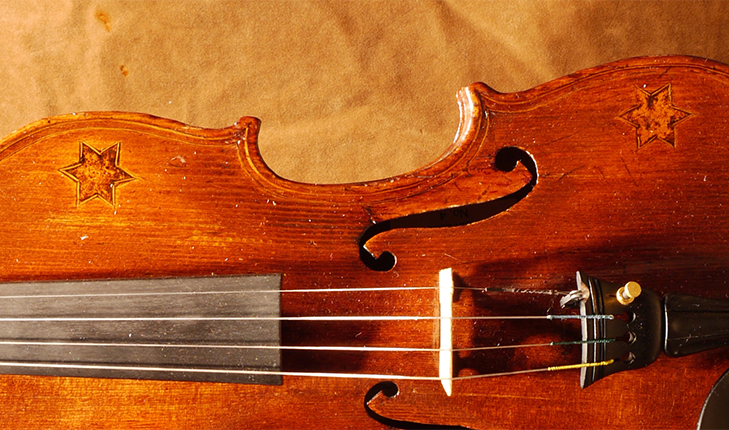Dozens of men, women, children, elderly and sick were packed in each cattle car – so tight they couldn’t move. As the train pulled to a stop, the clunks and rattles gave way to the sound of an orchestra along the tracks. The doors opened, and as people spilled out, they were beaten, attacked by dogs and even shot. All the while, above the chaos, the stench of death and falling ashes, beautiful music continued as a prayer for their souls. They had arrived at Auschwitz.
“The Nazis used these Jewish players to deceive and to cheat the Jewish people because the Jewish people believed in the violin,” said Amnon Weinstein, Israeli violin maker. “When they see the violin player, they think, ‘nothing can happen here. Look, someone is playing the violin.’”
For some, the violin was the way they survived the death camp. For others, serenading prisoners to their death was too much and they took their own lives. In the years that followed, many instruments were tucked away in attics to hide the memories of anguish.
At 8 p.m. on Saturday, Dec. 4, at the Concert Hall, 10 restored violins and one cello that survived the Holocaust will be played by the Fresno State Symphony Orchestra for a special concert, “Violins of Hope” conducted by Dr. Thomas Loewenheim, professor of cello and director of the Symphony Orchestra and Strings. Tickets are $15 for general admission, $12 for employees and seniors and $8 for students. The performance will feature speaker and Holocaust survivor Susanne Reyto and Dr. Toren-Immerman, professor of violin.
“Most of my family did not make it through the Holocaust, and most died in concentration camps,“ Loewenheim said. “We live in a fragile world, and I believe that remembering through art and music and approaching this sensitive topic through these instruments will leave a long-lasting memory of the people who will attend the concert.”
The instruments will be on display ahead of the concert, each with its own story. The program includes “Fanfare” by Ben-Haim, “Baal-Shem: Three Pictures of Chassidic Life” by Ernest Bloch, John Williams’ “Three Pieces from Schindler’s List” and symphonic work “Mathis der Maler” by Paul Hindemith. Additionally, as the concert occurs during Hanukkah, Rabbi Rick Weiner from Temple Israel will light the hanukkia as part of the event.
About 50 years ago, a customer walked into Weinstein’s shop in Tel Aviv, Israel, with a violin to restore. The customer survived the Holocaust because his job was to play the violin while Nazi soldiers marched others to their deaths. Weinstein opened the case to find ashes. Thinking of his own lost family, he closed the lid, unable to begin the project for years. In 1996, Weinstein was ready. He put out a call for violins from the Holocaust, which he restored so musicians, young and experienced, could play their memories around the world.
“Amnon Weinstein was my violin maker, and also the violin maker of my grandfather and mother, and has been a lifelong friend of the family for many decades,” said Loewenheim. “It is an honor to be able to share this concert with our students, colleagues and our community at large.”
All of the instruments belonged to Jews before and during the war, and many carry Stars of David as a decoration and an identity tag declaring they were proud klezmers.
Guests must have proof of complete COVID-19 vaccination or a negative test result 72 hours prior to the event start time. All guests (vaccinated or unvaccinated) must wear a face-covering, and attendees should do their best to maintain six feet of physical distance. If guests become ill within two days after the event, they must notify aurodriguez@csufresno.edu.





